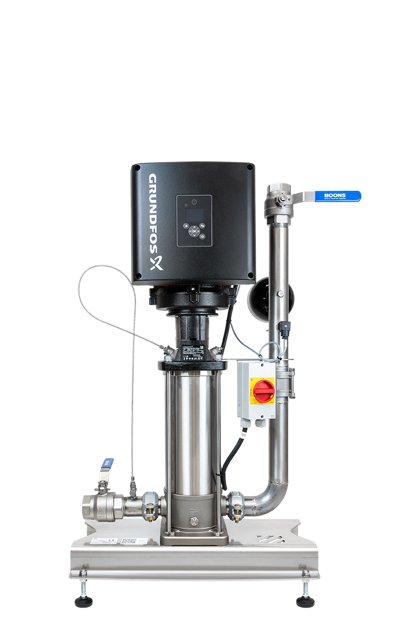Food Safe, Food Grade and FDA Compliant: Navigating the complexity of food safety standards
- Thursday 21 November 2024
- By: BOONS FIS
- Category: Foaming and disinfection installations
The demand for labels for cleaning agents in the food industry is increasing. People want to know whether a cleaning product is ‘food grade’ or ‘food compliant’ and whether certificates are available. What do these terms actually mean and is special certification required before a detergent can be used in the food industry? We will discuss this more in detail in this blog.
In the world of food processing, there are three terms that are often used interchangeably, although they each have a specific meaning: Food Grade, Food Safe and FDA Compliant. Each of these terms plays a crucial role in ensuring the quality and safety of food products. In this blog, we will explain the difference between these terms and discuss how a company like BOONS FIS can help food processing companies comply with these standards. In the food industry, every food-safe material is food-grade, but not every food-grade material is food-safe.
What does every term mean?
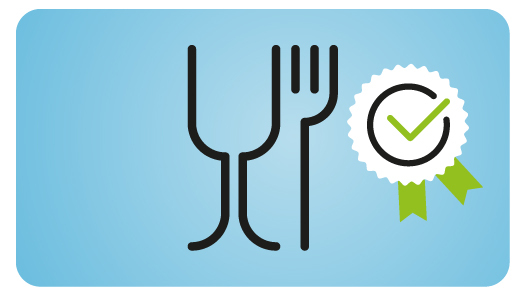
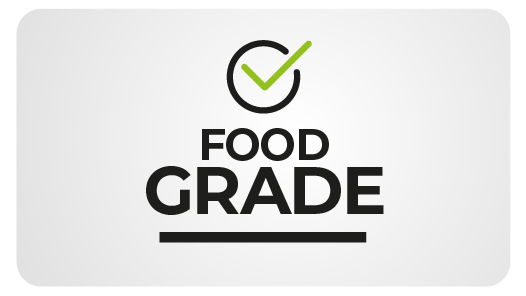
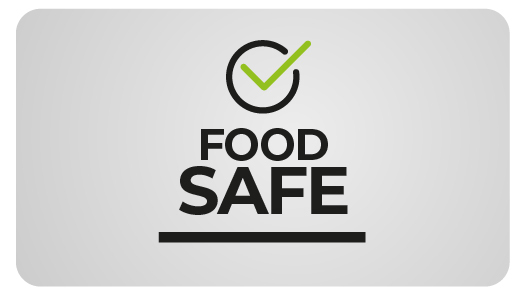

1. Food Grade
‘Food grade’ refers to materials, products or equipment that are safe for use in the food processing industry and that meet the standards and regulations set for food contact. These materials must meet strict criteria to ensure that they do not release harmful substances to food products and that they do not cause contamination that could endanger food safety.
For example, food grade plastics must be free of harmful chemicals such as plasticisers or BPA (bisphenol A) that can leak into food and pose a health risk on that maniner. Food grade metals must be corrosion resistant and not show reactions with food that could affect their taste, smell or safety. All of these criteria are designed to ensure that food that comes into contact with these materials is safe for consumption.
2. Food Safe
‘Food Safe’ is a term used to refer to products, materials, or processes that are safe for use in relation to food. It implies that the item or process has no harmful effects on food or consumer health. This goes a step further than ‘Food Grade’.
For example, a ‘Food Safe’ product can be packaging that does not contain harmful chemicals and does not allow migration of harmful substances to food. A ‘Food Safe’ material can also be used in the production of utensils, such as cutting boards or other kitchen utensils, and guarantees that the food that comes into contact with it will not be contaminated.
In short, ‘Food Safe’ means that a product or process meets the requirements and standards set to ensure food safety throughout the production, packaging and consumption process.
3. FDA Compliant
‘FDA Compliant’ refers to compliance with the Food and Drug Administration (FDA) regulations and guidelines in the United States. The FDA is the government agency responsible for regulating the safety and proper labelling of food, drugs, medical devices, cosmetics and tobacco products in the US.
When a product or process is ‘FDA Compliant’, it means that it complies with all relevant regulations and guidelines established by the FDA for that specific product or process. This may include, for example, manufacturing practices, ingredient declarations, labelling, safety testing, etc ... depending on the nature of the product or process.
For companies active in the food processing sector, ‘FDA Compliant’ means that they meet the standards set by the FDA for the production, packaging and distribution of food products. This contributes to consumer confidence in the safety and quality of their products.
Guidelines for detergents and disinfectants for the food industry within the EU
Within the European Union, cleaning agents and disinfectants for the food industry must comply with specific laws and regulations to ensure they are safe and effective, without endangering food safety. Here are some of the key regulations and guidelines these products must comply with:
1. Biocidal Products Regulation (EU) 528/2012
This regulation regulates the marketing and use of biocidal products, including disinfectants used in the food industry. The regulation requires that all biocidal products within the EU undergo an approval process before they are placed on the market. This process assesses the safety and effectiveness of the active substances in the biocides for both humans and the environment.
2. General Food Safety Regulation (EC) No 178/2002
This regulation establishes the general principles and requirements of food law, and determines procedures in the area of food safety. Although not directly aimed at cleaning agents, it affects the way in which all substances used in food processing environments should be managed, in order to avoid cross-contamination and ensure general food safety.
3. Regulation (EC) No 852/2004 on food hygiene
This regulation requires that food contact surfaces must be adequately cleaned and, where necessary, disinfected. Although the regulation itself does not prescribe specific cleaning products or disinfection protocols, it implies that the products used must be effective and safe, without contaminating the food.
4. Chemicals regulation REACH regulation (EU) 1907/2006
REACH (Registration, Evaluation, Authorisation and Restriction of Chemicals) is a regulation designed to improve the protection of human health and the environment from the risks that can be caused by chemicals.
5. CLP regulation (EU) 1272/2008
CLP regulation regulates the classification, labelling and packaging of chemical substances and mixtures in the EU. Cleaning and disinfecting agents must comply with these regulations by ensuring proper registration, evaluation and labelling so that users are informed about content and safe use.
6. Directives for good production practices (GMP)
GMP guidelines may apply to manufacturers who produce detergents and disinfectants for use in the food industry, especially in environments where the products are manufactured that come in direct contact with food.
7. European Detergents Regulation (EU) 648/2004
This regulation came into force to regulate the safety and environmental friendliness of detergents within the European Union and establishes sets clear rules for the composition, biodegradability, and labelling of detergents.
It is crucial for companies in the food industry, to choose cleaning detergents and disinfectants suppliers who comply with these standards and who can demonstrate that their products are effective and safe for use in food processing environments. This not only helps maintain high hygiene standards and legal conformity, but also enhances the food safety and quality essential to consumer confidence.
What can BOONS FIS do for food processing companies?
BOONS FIS is on the front line of food safety. Our disinfection and foam installations and personal hygiene equipment are the backbone of hygienic standards in the food processing sector. In a world where food safety is essential, BOONS FIS offers not only solutions, but also peace of mind.
With our specialised knowledge and advanced technologies, BOONS FIS can help companies in the food processing sector, to meet strict food safety standards. Whether it is disinfecting production lines, minimising microbial contamination or preventing cross-contamination, BOONS FIS provides tailor-made solutions that maintain the highest standards of hygiene.
By investing in the cleaning installation ‘by BOONS FIS’ and their hygiene equipment, companies can not only meet current food safety standards, but also anticipate future regulations and exceed consumer expectations. Our installations are not only a means of compliance, but also a source of competitive advantage and reputation protection.
In a world where food safety has become a non-negotiable priority, BOONS FIS is the partner companies can rely on to ensure their operational integrity and maintain consumer confidence.
BOONS FIS is known for its expertise in providing high-quality technology solutions for the food processing industry. Contact us today and make an appointment to visit our ‘Experience Room’.
Products in this message

Hygiene stations
Hygiene stations are a necessity at your company if hygiene is a very important part of your...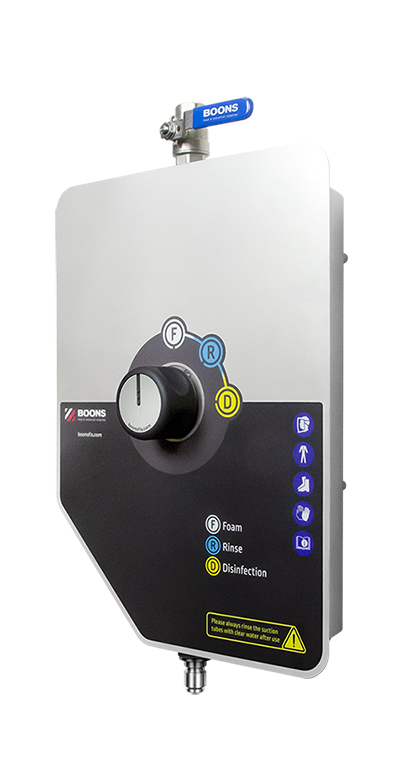
Decentralised stations DSW
Decentralised cleaning system When the production space uses different chemicals or other...